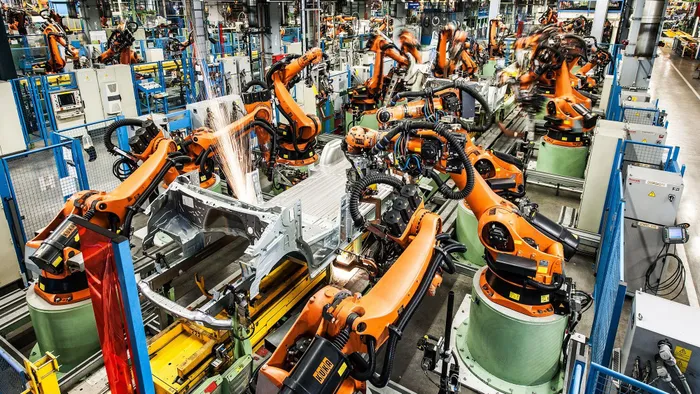
There have been mixed reactions from the automotive industry to the 25 basis points interest rate cut announced by the South African Reserve Bank last week.
Image: Supplied
There have been mixed reactions from the automotive industry to the 25 basis points interest rate cut announced by the South African Reserve Bank (Sarb) last week.
Renai Moothilal, CEO of the National Association of Automotive Components and Allied Manufacturers (NAACAM), said that they welcomed the recent interest rate cut announced by Sarb, as this will likely provide impetus to consumer uptake in the automotive market.
“There will be greater motivation for the purchase of new vehicles, and if these are of the type assembled locally, then component producing companies in SA will benefit from greater volumes, from which greater localisation can be unlocked.”
Moothilal added that ultimately it is the components manufacturing part of the value chain where the greatest economic benefits come from employment, skills and technology transfer, and new business opportunities.
“Besides the positive impact on new vehicle sales, we know that consumers have been under pressure financially and under such circumstances may delay things like vehicle repair and maintenance. The stimulus that comes from this rate cut should also be beneficial for component production in such aftermarket-type components including segments like autoglass, tyres, filtration, electronics and braking systems, all of which are produced domestically.”
Dr Roelof Botha, an economist and advisor to the Optimum Investment Group, said in Drive Motor Index Q1 2025 that the lowering of the official bank rate (the repo rate) by 25 basis points in January resulted in the prime overdraft rate declining to 11% (compared to 11.75% prior to September 2024).
“The relaxation of monetary policy, albeit only marginal, has clearly provided South Africa’s motor vehicle sector with a measure of impetus, with the Drive.co.za Motor Index (DMI) having increased by 3.9% in the 1st quarter of 2025 (compared to the 1st quarter of 2024).”
Brandon Cohen, National Chairperson of the National Automobile Dealers’ Association of South Africa (Nada), said that it was most satisfying to see consumer confidence, boosted by a further interest rate cut and positive developments on the geopolitical front, translate into a 22% improvement in retail new vehicle sales in May.
“Sales were relatively slow during the first half of May but increased significantly in the latter half of the month following President Ramaphosa’s meeting with U.S. President Donald Trump, the finalisation of the national budget, and the interest rate announcement,” Cohen said.
Cohen added that the substantial rise in overall sales was primarily driven by a 30% increase in passenger car sales, with 31,741 units retailed.
“In fact, actual market activity may have even been stronger than the reported total of 45,308 vehicles sold in May, as only 12 of the 24 Chinese brands currently available in South Africa submitted sales data. Retail dealer channels performed particularly well, accounting for 88.4% of total vehicle sales in May. In contrast, rental companies made up a much lower-than-usual 6.8%, industry corporate fleets 3%, and government purchases just 1.8%.”
Cohen said that the commercial vehicle sector performed exceptionally well in May, potentially signalling a renewed sense of confidence in the broader economy.
Thembinkosi Pantsi, Vice-Chairperson of Nada, said that the used vehicle market also delivered some noteworthy trends.
“May was a fascinating month for the pre-owned segment of the retail motor business. Many customers opted for pre-owned models from aspirational brands instead of investing in new vehicles. This trend has been gaining traction in recent months, with some buyers even expressing interest in premium brand cars that are between seven and ten years old.”
On Wednesday, Minister of Mineral and Petroleum Resources Gwede Mantashe announced that both grades of petrol will decrease by five cents per litre (5.00 c/l) while both grades of petrol decreased by thirty-six point nine cents per litre (36.90 c/l).
This follows Minister of Finance Enoch Godongwana in Budget 3.0 in May announcing an increase in the Fuel Levy, which will increase by 16.00 c/l on petrol and 15.00 c/l on diesel effective on Wednesday.
Abigail Moyo, spokesperson of the trade union UASA, said that although the recent increase in the general fuel levy presents a financial setback for consumers, the decrease in fuel, paraffin, and LPGas prices is welcome news.
“The general fuel levy for petrol has risen to R4.01 per litre, while that for diesel has increased to R3.85 per litre, effective from midnight. Despite the fuel levy hike, any decrease in fuel prices, no matter how small, is positive news for consumers who have been struggling with the rising cost of living due to high inflation rates on goods and services.”
BUSINESS REPORT
Visit: www.businessreport.co.za